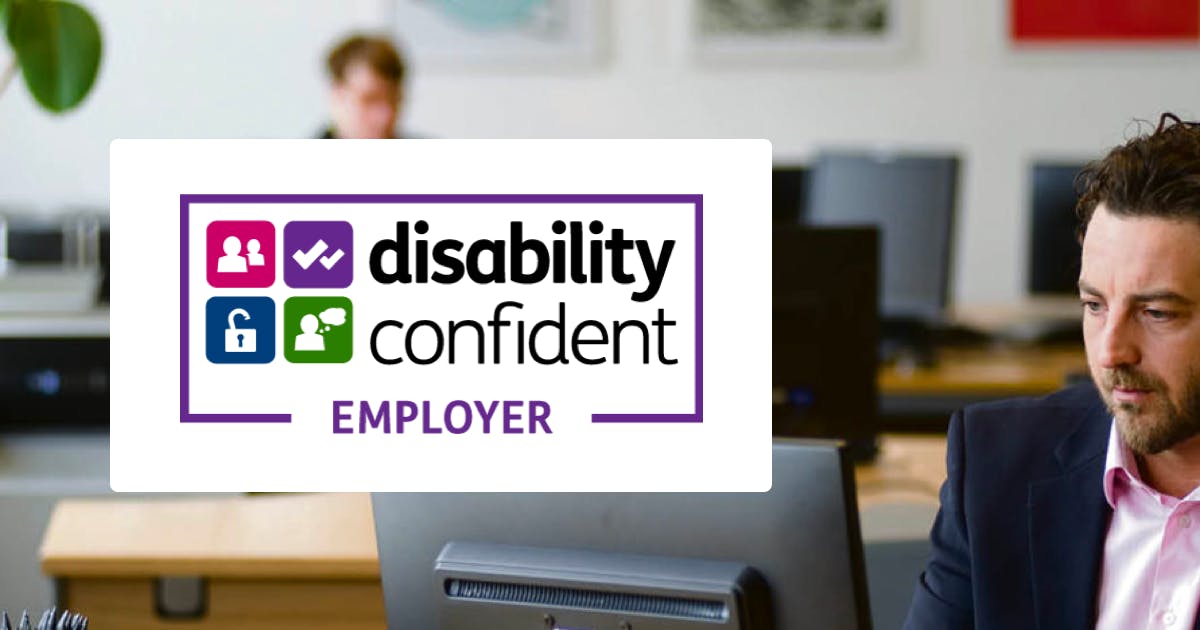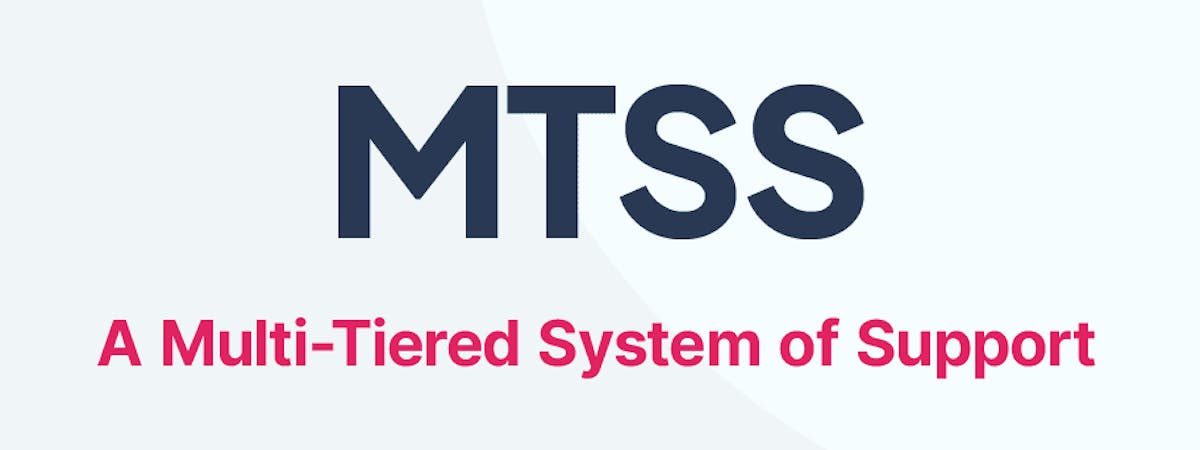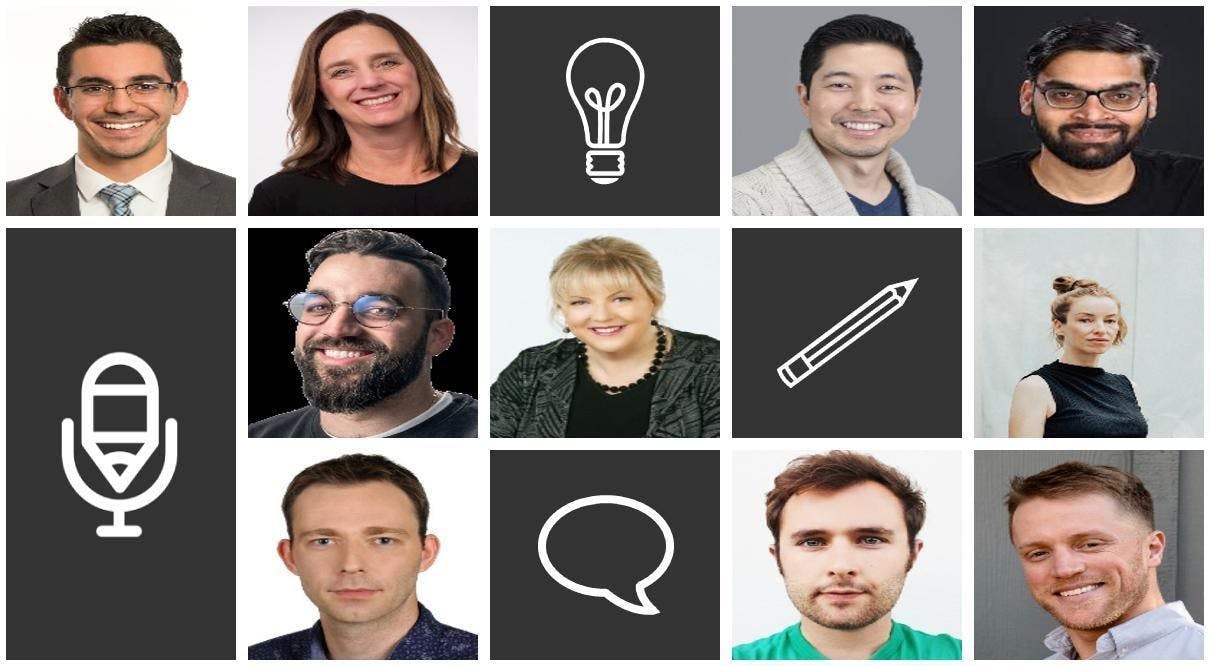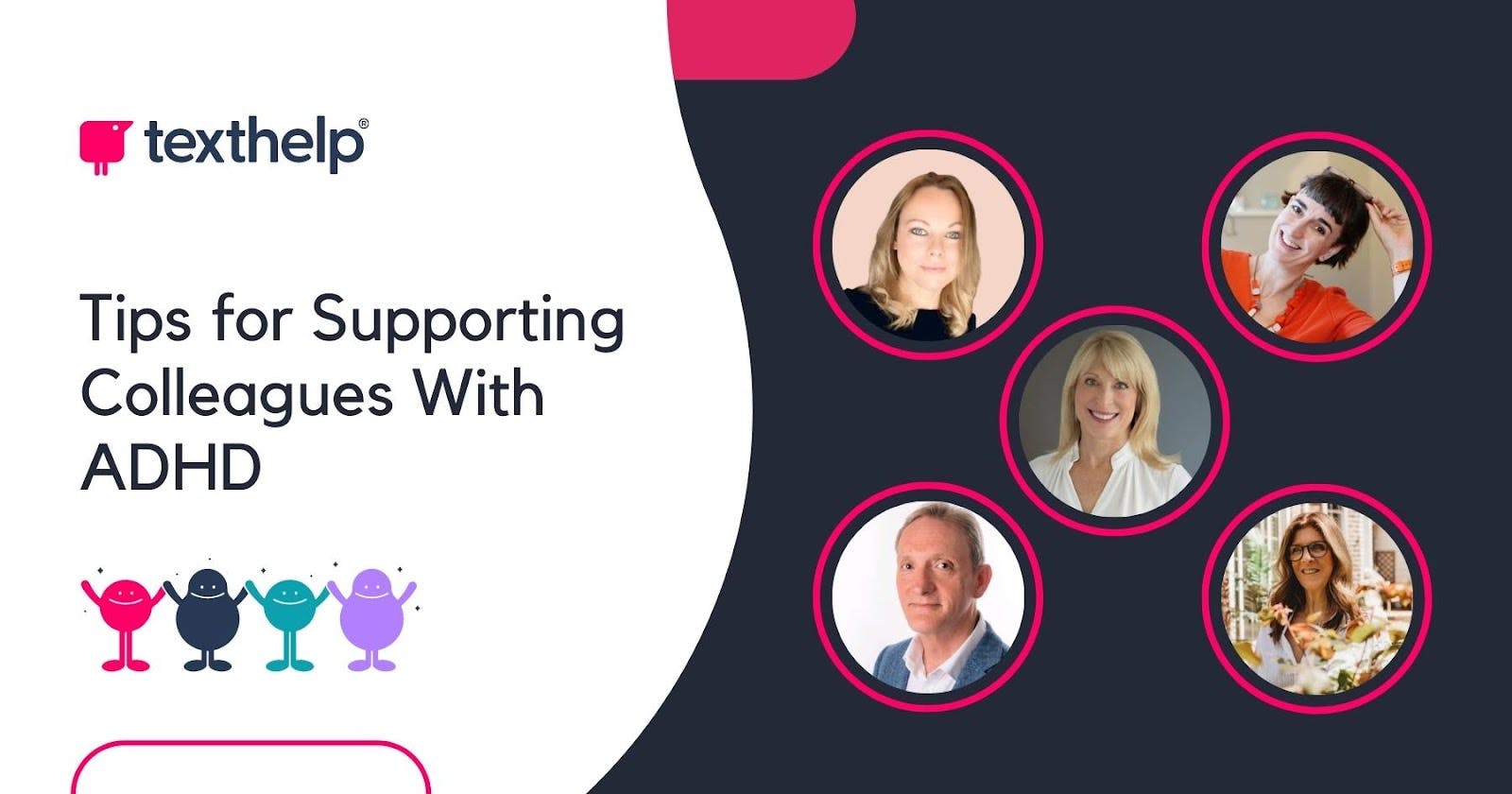Topic: diversity and inclusion
Check out our diversity and inclusion resources and guides
Become a Disability Confident organisation
Before diving into your Disability Confident journey, find out how we started ours and how we continue to strive for an inclusive working environment for all

Neurodiversity and the Future of Work: Shaping Tomorrow's Workplace
Texthelp's Chief People Officer Cathy Donnelly explores neurodiversity in the workplace and how inclusive workplace practices are shaping tomorrow's workplace.

MTSS vs RTI: What’s the difference?
Learn about the similarities and differences of MTSS vs RTI. Discover how they can work together to create an environment designed to meet the needs of all learners.

Belongingness at work: DE&I experts share how to create a culture that promotes acceptance, inclusion & belonging
Hear 7 key thoughts from DE&I experts on creating a culture that promotes acceptance, inclusion & belonging.

SXSW EDU: How can employers support different thinkers to transition into the world of work?
Gain key insights from JFFLabs, Texthelp, Accenture and BigSpring.

Unlocking neurodiversity in the workplace
Work’s where many of us spend a big chunk of our lives. It can be a productive, stimulating place where great things happen. But it’s not without its stresses, strains and challenges that employees face daily.

3 reasons to bring disability inclusion to the mainstream: the rising, the unforeseen & the unforgettable
Beyond the moral responsibility to do so, let's take a look at the growing need to bring disability inclusion into the D&I agenda.

10 HR Leaders Make A Pledge For Disability Inclusion
What will you do to challenge unconscious biases, and help your neurodivergent colleagues and those with disabilities, to feel more understood and welcomed in the workplace? Here's 10 pledges from HR leaders.

How to approach disability inclusion with triple A technique
EY and Texthelp explore how to approach disability inclusion and create lasting impact.

Disability inclusion: A Q&A with IBM
In this blog, IBM's Disability Employee Network Group (ENG) Lead and D&I Champion, Alix Horton, shares how IBM champion disability inclusion.

9 workplace inclusion questions answered - and tips from 30 DEI experts
Here, we answer 9 key questions around workplace inclusion based on advice shared by speakers at this year's Festival of Workplace Inclusion. Gain tips that'll help you revolutionize inclusion in your workplace.
How to use Universal Design to enhance the employee life cycle
Discover how to enhance every stage of the employee life cycle, from recruitment to retention, using Universal Design. Explore strategies for a more inclusive and productive workplace. Learn more.

14 ways to future-proof your business with neuro-inclusion
14 business leaders share one key piece of advice on how organizations can be more neuro-inclusive.

10 business benefits that come from a neurodiverse workforce
10 business leaders share one way neurodiversity has strengthened their business.

4 ways employers can combat stigmas surrounding neurodiversity
In this interview, Martin McKay shares how to reduce stigma around neurodiversity in the workplace.

Supporting neurodiversity in the changing world of work
In this Q&A session, we hear from Aidan Healy, CEO of Lexxic, on supporting neurodiversity in today’s evolving workplace.

Supporting autistic employees during change
In this guest blog, our friends at Auticon tell us how they support employees with Autism during times of change.
12 tips for supporting colleagues with ADHD in the workplace
ADHD coaches, business leaders, and people with lived experience of ADHD share 12 tips to help you support employees with ADHD to accomplish their tasks and feel accepted in the work environment.

The key to unlocking neurodiversity & the code for success
In a recent discussion, Texthelp, EY and SAP explored how to unlock the value of neurodiversity. But, what does it mean to ‘unlock the value of neurodiversity?’ Here, we answer that question while highlighting some key insights from the discussion.

We’re back, with a focus on transforming tomorrow!
On 25 & 26 October, our virtual Festival of Workplace Inclusion will be back. As the second of its kind, it’s become an annual event exploring inclusion for neurodivergent, disabled & multilingual employees, and beyond!
